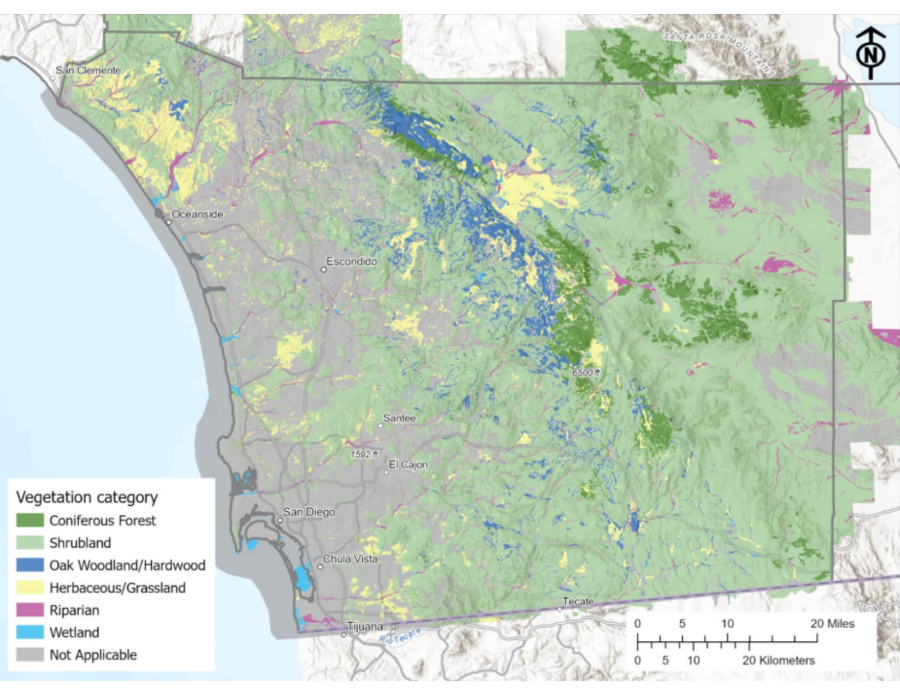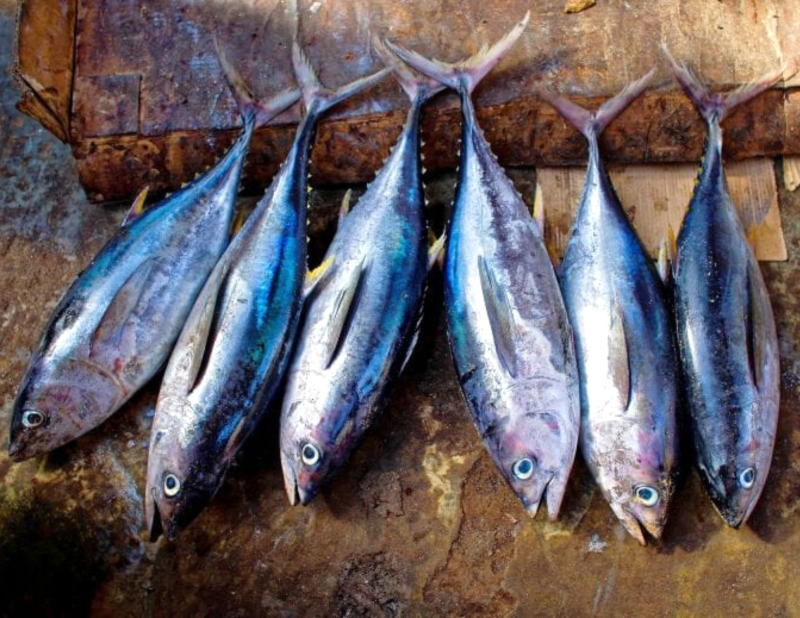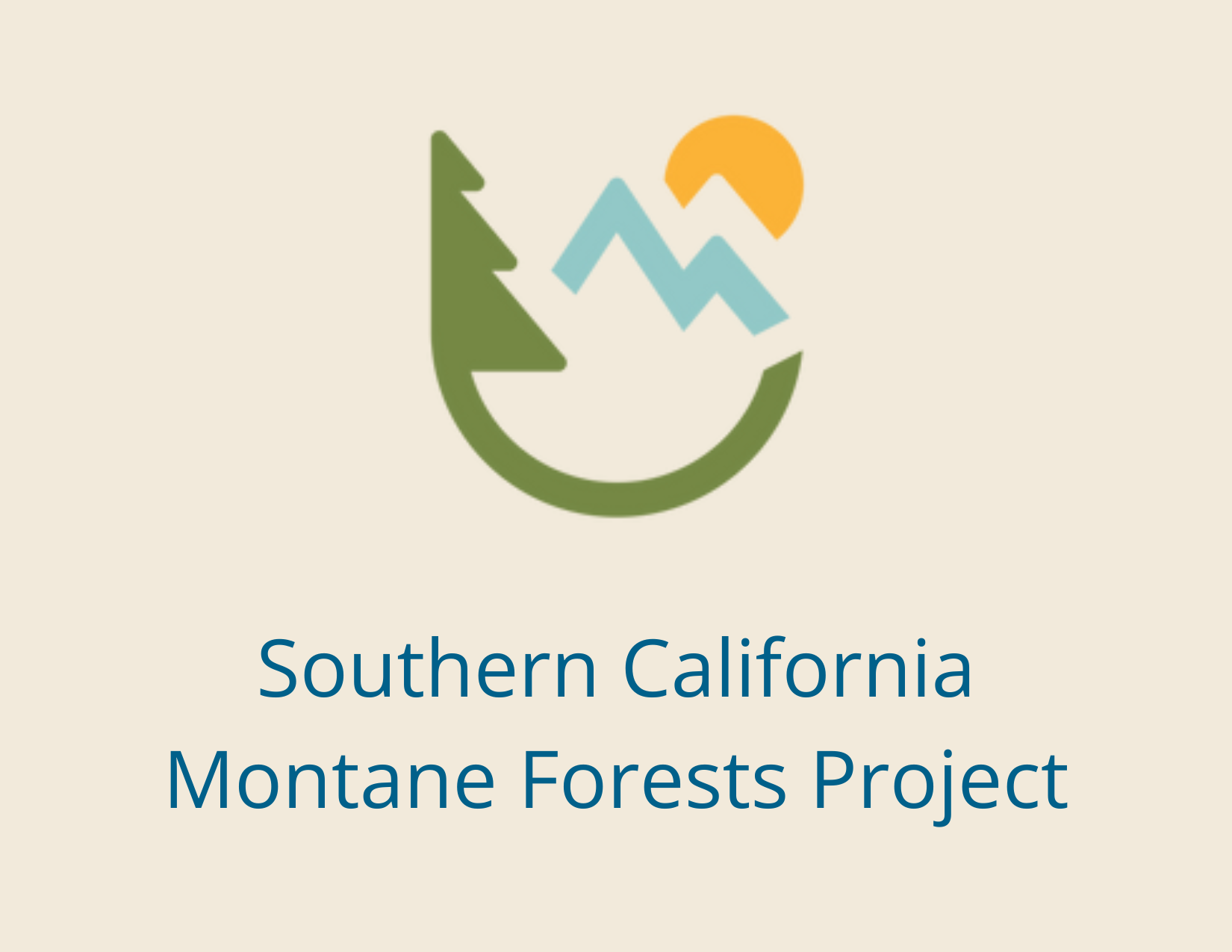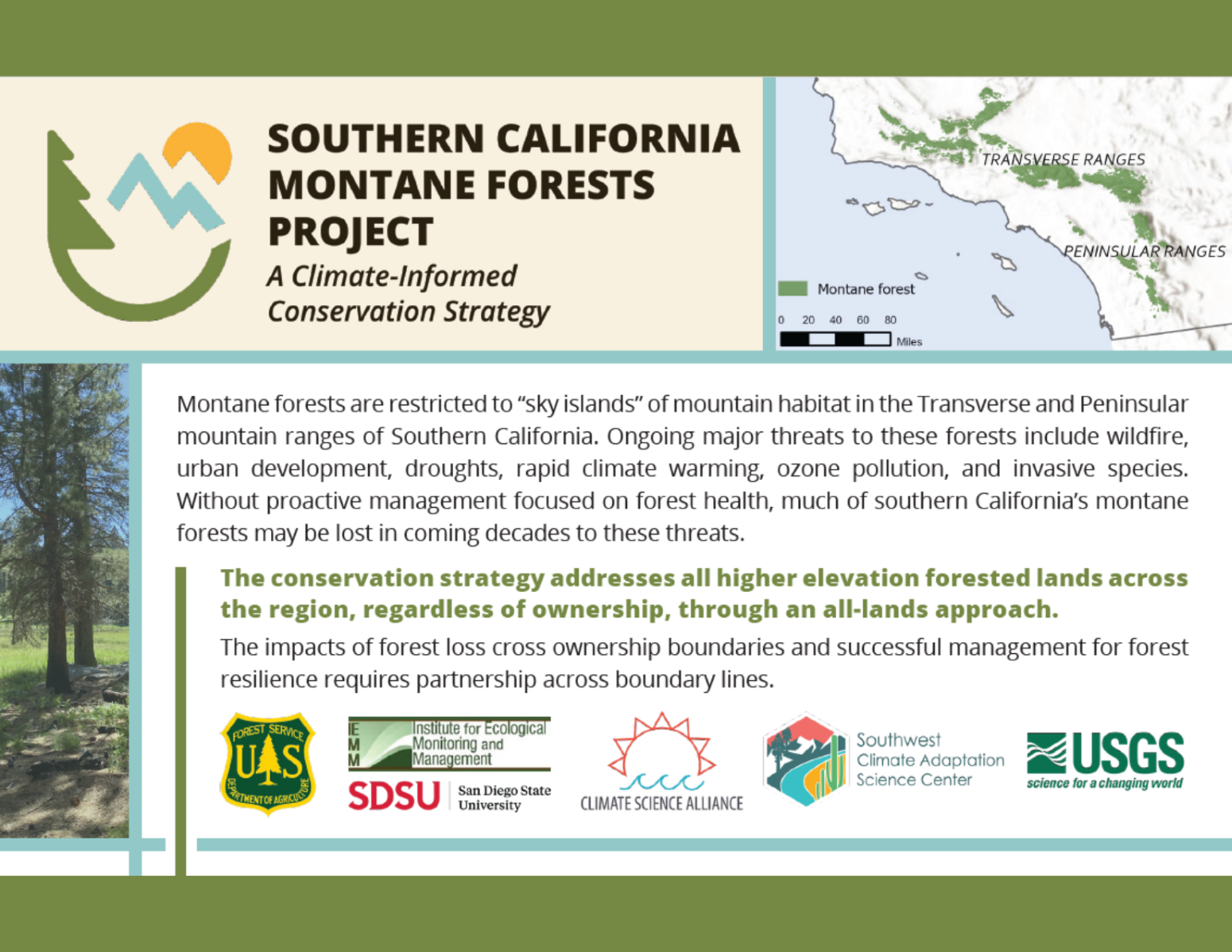Southern California Montane Forest Conservation Strategy
This project is a collective, climate-informed strategy to develop effective solutions to protect Southern California montane forests.
Southern California’s montane forests are “sky islands” of mountain habitat that feature conifers and several oak species. These forests are facing rapidly intensifying stressors and disturbances that are exacerbated by climate change, increasing wildfire severity, and human population growth.
As such, IEMM is working with our project partners at the US Forest Service, Climate Science Alliance, and US Geological Survey to better understand and protect these unique ecosystems. By building a community of practice, we are working to:
-
advance our collective understanding of the vulnerabilities and threats facing these forests
-
identify challenges and barriers to protecting montane forests
-
collaboratively identify opportunities and strategies for increasing forest resilience
Learn more about this project
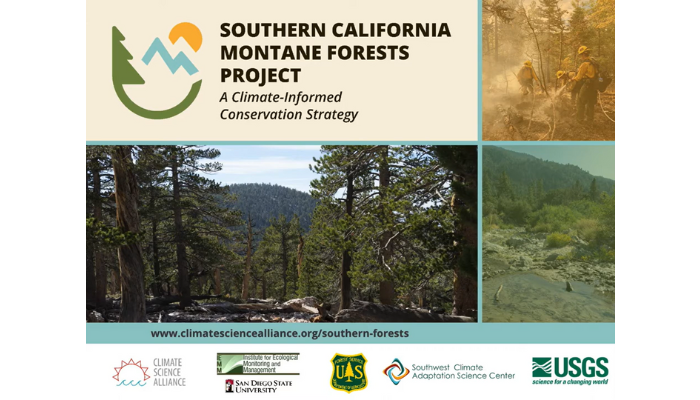
Project Partners and Collaborators
More Climate Adaptation Science Projects

This project produced connectivity linkage maps for the South Coast Ecoregion that serve to support practical, proactive management of biodiversity under climate change.

